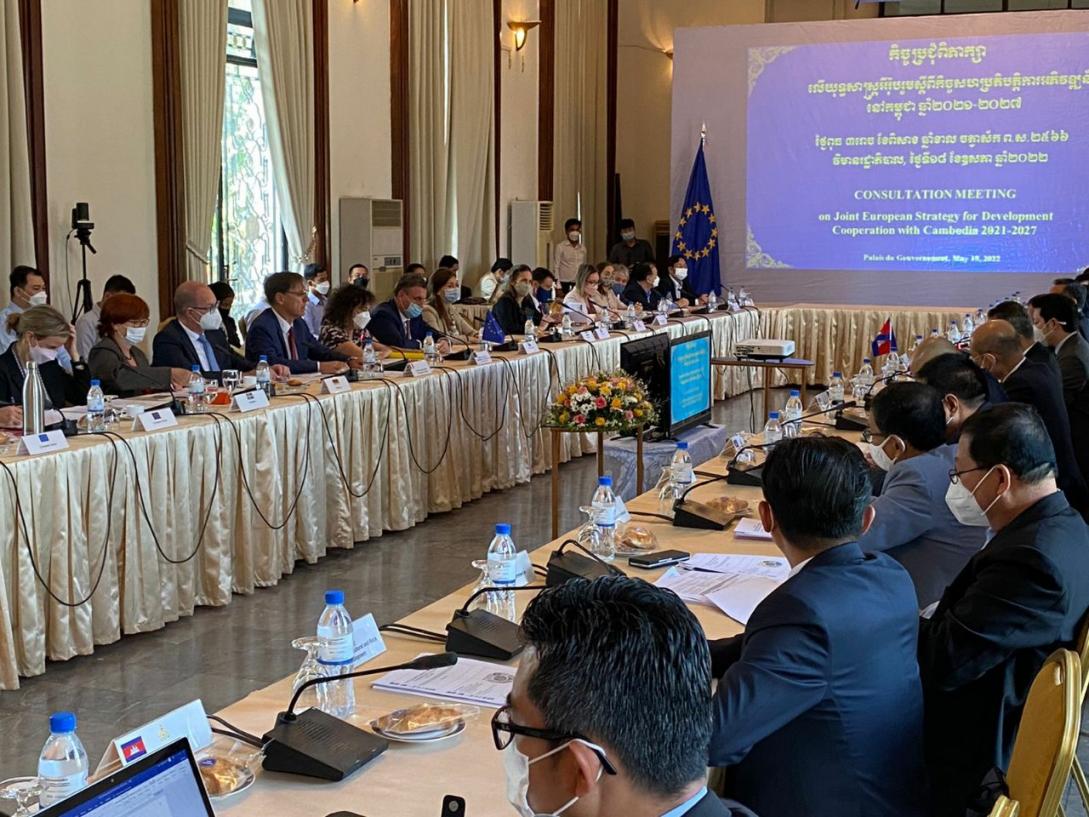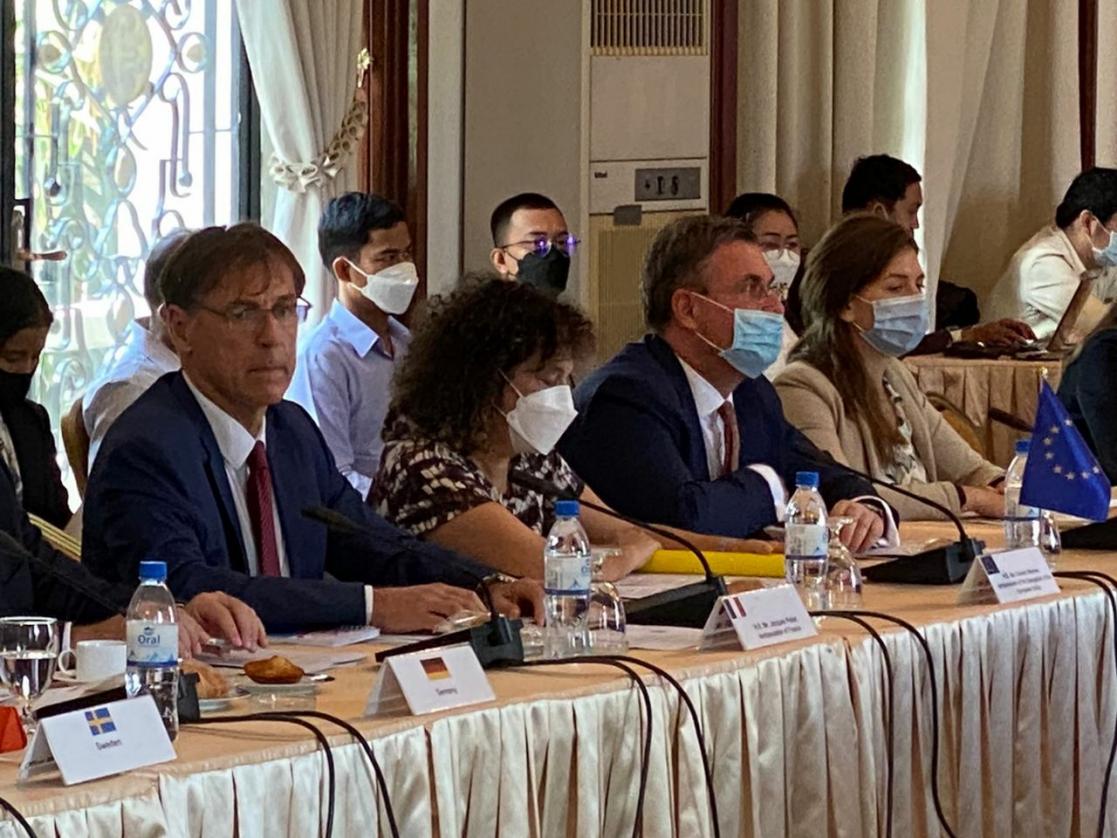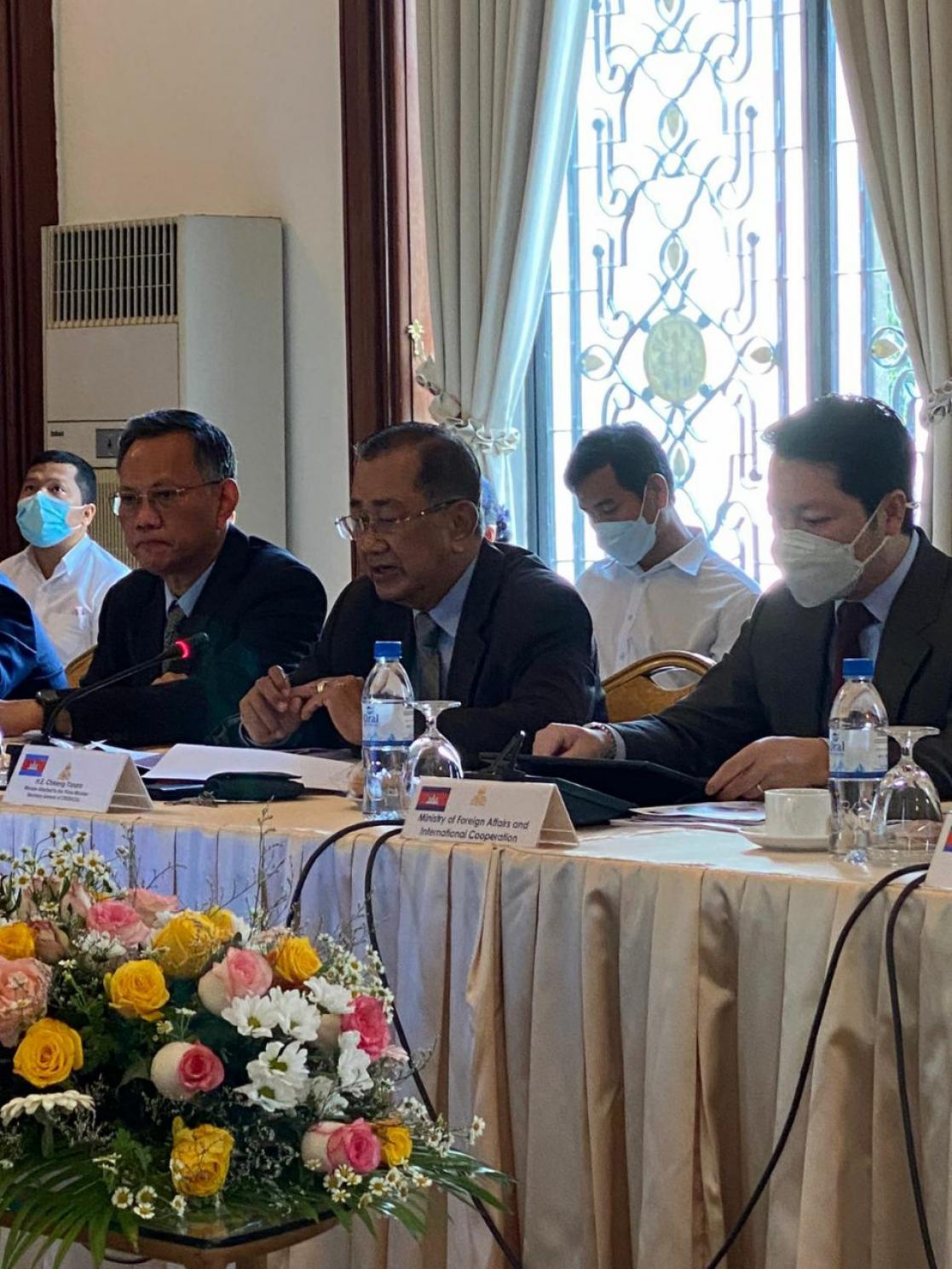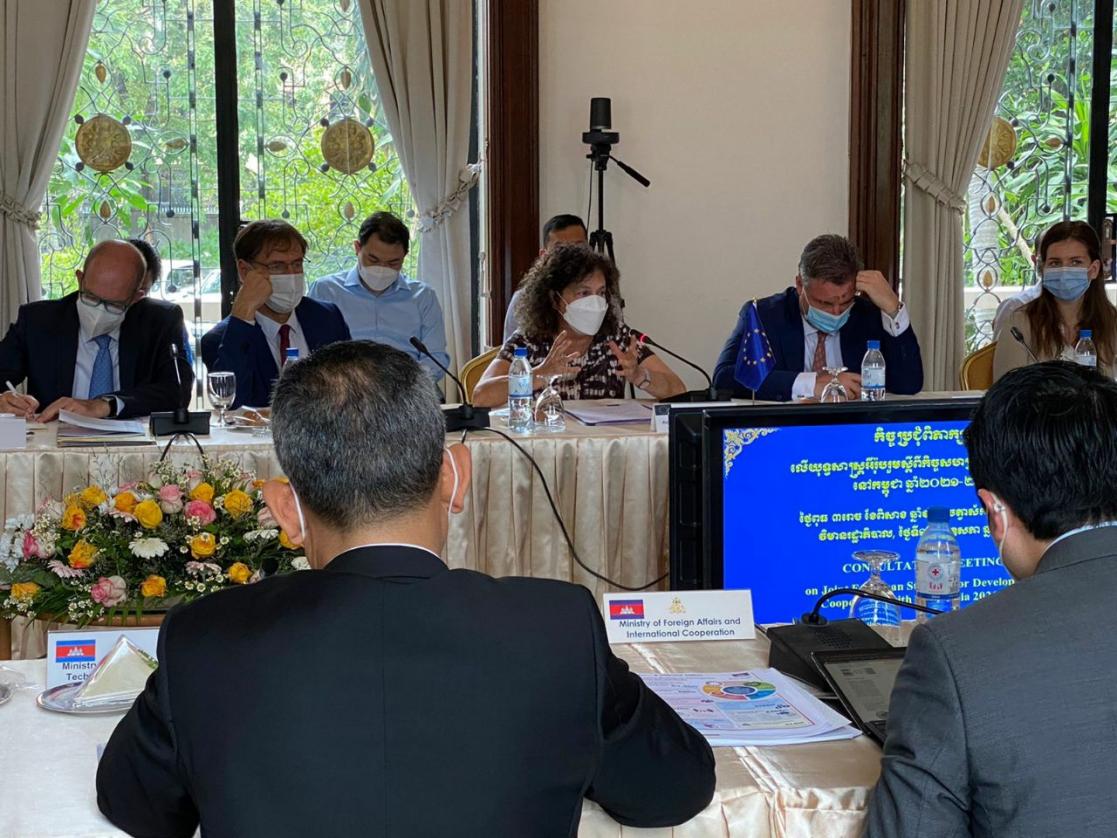Joint European Strategy for Development Cooperation with Cambodia, 2021-2027 launched

On 18 May 2022, H.E. the Ambassador of the European Union, H.E. the Ambassador of France, H.E. the Ambassador of the Czech Republic, H.E. C.d.A. of the Embassy of Germany, H.E. the Consul of Belgium, H.E. C.d.A. of the Embassy of Hungary, the Head of the Section Office of the Embassy of Sweden, the Head of the Swiss Development Cooperation, as well as representatives of the European Financial Institution (Agence Française de Développement), met H.E. Minister Mr Chhieng Yanara to present the second Joint European Strategy for Development Cooperation with Cambodia (2021-2027). The event, hosted by the Council for the Development of Cambodia (CDC), saw significant participation by the line ministries and key institutions of the Royal Government.
The Joint European Strategy for Development Cooperation with Cambodia, 2021-2027 frames European Partners’ joint development cooperation with Cambodia for the next six years. The participating European Partners include Belgium, Czech Republic, the European Union, the European Investment Bank (EIB), France (with the Agence Française de Développement), Germany (including GIZ and KfW), Hungary, Ireland, Sweden and Switzerland.
H.E. Minister Mr Chhieng Yanara chaired the event and “welcomed the Strategy, which promotes European policy coherence and ensures greater impact of European partners’ cooperation in Cambodia”.
“The new strategy is fully aligned with Cambodia’s Rectangular Strategy IV and with European partners’ global priorities, including promoting the green transition, enhanced multilateralism and the respect of a rule based global order”, said H.E. Mr Jacques Pellet, French Ambassador to Cambodia, in his opening address. “The new Strategy will contribute to the implementation of the Agenda 2030 and the Sustainable Development Goals and will support Cambodia in its efforts to achieve higher connectivity with ASEAN, as well as improved regional and global integration”, he added.
The European Partners will pursue these objectives focusing on six interlinked priority areas, with gender equality and the human rights-based approach integrated throughout. The priorities are:
- Strengthen democratic accountability, integrity and effectiveness of Cambodia’s public institutions, systems and services at all levels (‘supply side of governance’) with particular focus on major governance reform programmes, including corruption.
- Foster democratic participation, respect for human rights, gender equality, and support an enabling environment for civil society in Cambodia (‘demand side of governance’).
- Support quality, accessible and inclusive services to strengthen human development that contributes to sustainable socioeconomic development, and poverty alleviation, encompassing education, skills development and TVET, health, nutrition and social protection as well as social and rural infrastructure.
- Enhance competitiveness of Cambodia on the regional and global marketplaces through trade and private sector development, an enabling business environment and sustainable production as well as decent employment practices in line with international standards.
- Sustainable green development, including management of Cambodia’s natural resources, environmental protection and conservation, disaster risk reduction and resilience to climate change, promote green energy and energy efficiency, the sustainable development of agriculture, aquaculture and fisheries, forestry and mine clearance.
- Active and coordinated support to the preservation of Cambodia’s cultural heritage, with a particular but not exclusive focus on Angkor.
The Strategy puts emphasis on strengthening socio-economic recovery as well as crosscutting issues of human rights, inclusion, gender equality, women and youth empowerment, climate and environmental sustainability. The Joint European Strategy also identifies entry-points to advance digitalisation and to assist the Royal Government to ensure compatibility, sustainability of ICT solutions and alignment with relevant international norms and standards, in particular as regards data protection.
In her closing remarks, H.E. Carmen Moreno, Ambassador of the European Union, spoke about the relevance of the “Joint European Strategy” and its importance for the implementation of broader European Union strategies in Cambodia, such as the Indo-Pacific Strategy or the Global Gateway Strategy. The “JES will support the European partners and Cambodia, its Government, civil society and private sector, to enhance their connectivity in a sustainable way, with the highest social and environmental standards”.
-END-



